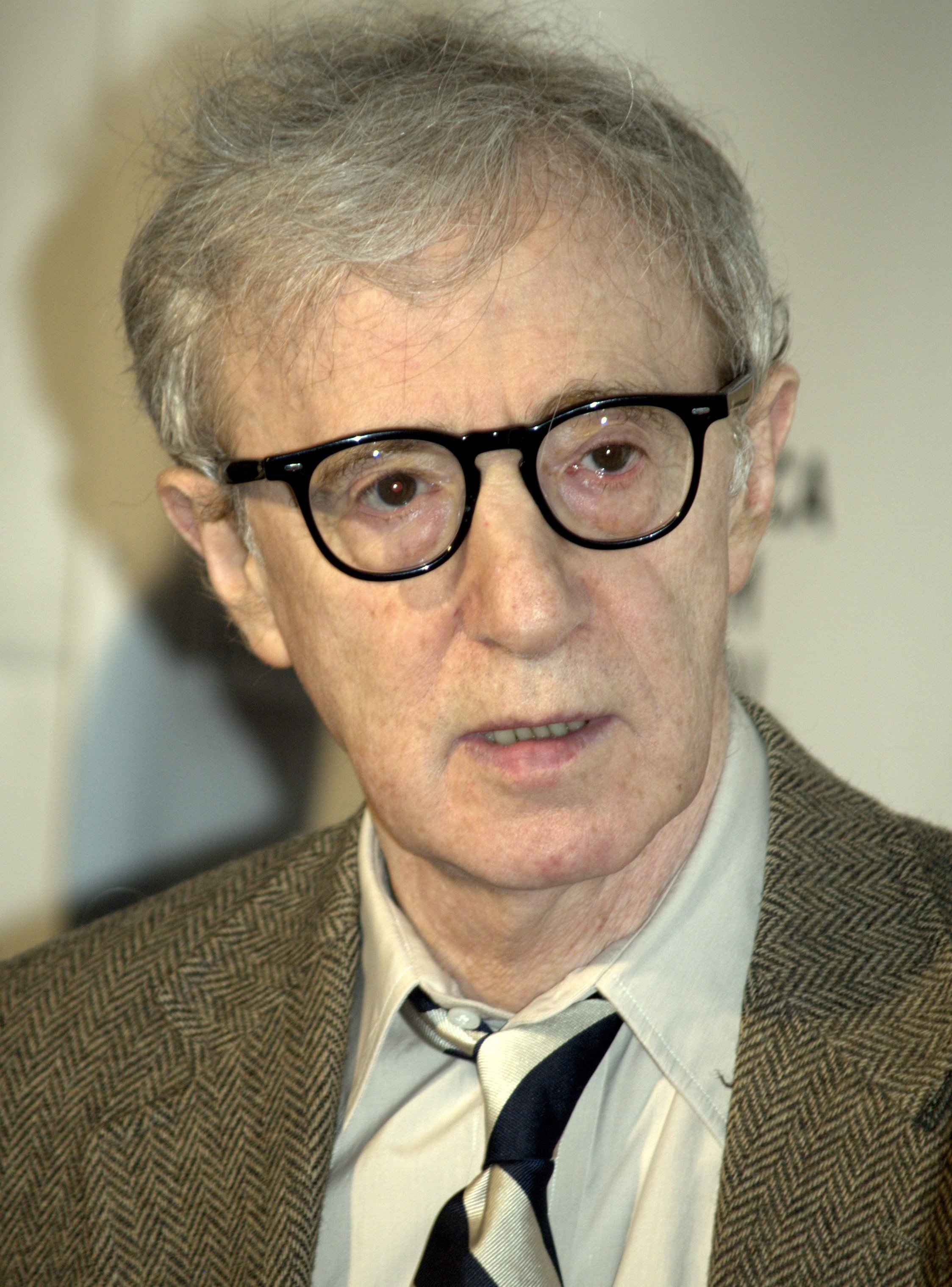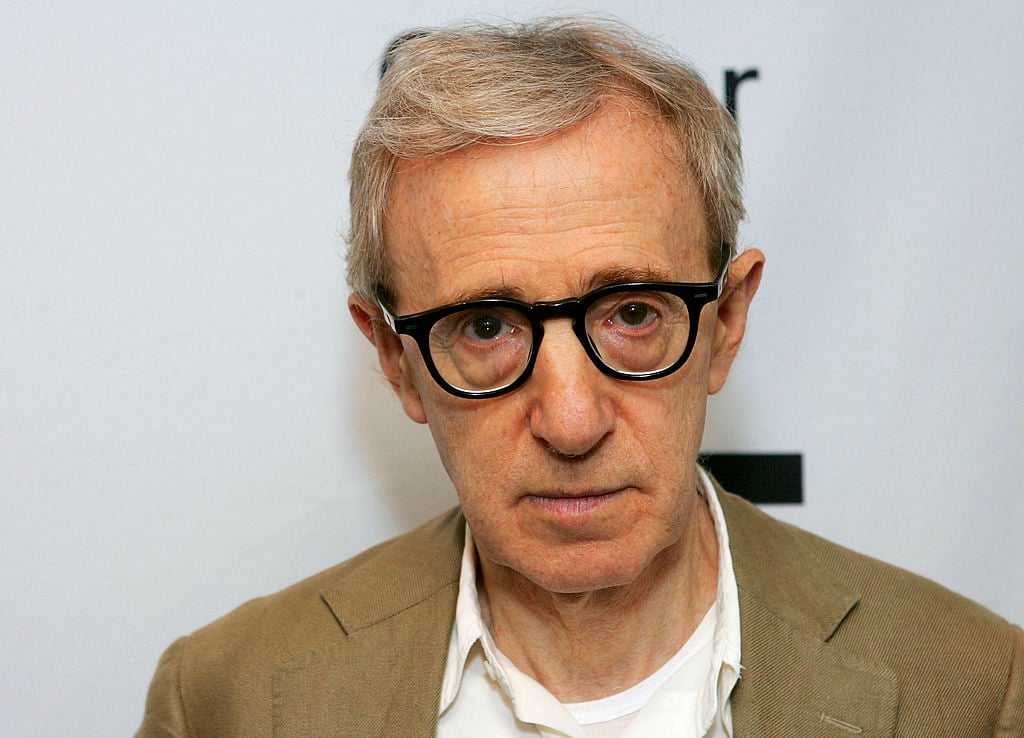Woody Allen: Life, Films, & Legacy - Explore His Works!
Can a career spanning over six decades, marked by both critical acclaim and controversy, truly encapsulate the multifaceted talent of a single individual? The life and work of Woody Allen offer a resounding "yes," presenting a tapestry woven with laughter, introspection, and a singular cinematic voice that continues to resonate.
Born Allen Stewart Konigsberg on December 1, 1935, in the Flatbush area of Brooklyn, New York, Allen's early life, as he himself described, was rooted in a "typical noisy ethnic" family. This foundation, coupled with a keen observation of human behavior, laid the groundwork for a career defined by a distinct blend of humor, intellectualism, and a persistent exploration of the human condition.
| Category | Details |
|---|---|
| Full Name | Allen Stewart Konigsberg (born) |
| Stage Name | Woody Allen, Heywood Allen |
| Date of Birth | November 30, 1935 |
| Birthplace | Bronx, New York |
| Nationality | American |
| Occupation | Filmmaker, Actor, Comedian, Writer, Musician, Playwright |
| Known For | Directing, writing, and starring in films characterized by wit, intellectualism, and exploration of complex themes. |
| Notable Works | Annie Hall, Manhattan, Crimes and Misdemeanors, Zelig |
| Awards | Four Academy Awards (including Best Director for Annie Hall, and Best Original Screenplay for Annie Hall, Midnight in Paris, and Hannah and Her Sisters). |
| Spouse(s) | Harlene Rosen (m. 19561962), Louise Lasser (m. 19661969), Soon-Yi Previn (m. 1997present) |
| Children | Bechet Dumaine Allen, Manzie Tio Allen, Ronan Farrow (alleged) |
| Reference | IMDb |
Allen's journey into the world of entertainment began early. As a young boy, he was captivated by magic tricks and the clarinet, hobbies that would remain constants throughout his life. These interests, seemingly disparate, foreshadowed his later ability to weave together the seemingly incongruous humor and profundity, the everyday and the philosophical into his art.
His entry into the film industry wasn't immediate. Before he became a director, Allen honed his craft as a comedy writer. His distinctive voice and his particular brand of New York humor quickly set him apart. The transition from writing to performing was a natural one, and he began appearing in his own material, further refining his comedic persona.
Allen's initial foray into directing, however, was marked by a clash of sensibilities. When working on "What's New Pussycat?" in 1965, he felt his New York humor was not translating under director Clive Donner's British sensibilities. This experience led him to a crucial decision: to direct all future films from his own material. This pivotal choice granted Allen complete artistic control and solidified his singular vision.
This artistic autonomy was crucial to his development, allowing him to cultivate a filmmaking style that was immediately recognizable. The films themselves, ranging from comedies to serious dramas, became a lens through which he explored subjects that consistently intrigued him: the complexities of relationships between men and women, the ever-present specter of death, and the elusive search for the meaning of life. Allen's films are not simply about these subjects; they delve into them with a relentless intellectual curiosity, often questioning societal norms and moral conventions.
Allen's filmography is a vast and varied landscape, including both celebrated and controversial works. "Annie Hall" (1977), for which he won an Academy Award for Best Director and Best Original Screenplay, is often cited as a defining work. This film, a semi-autobiographical exploration of a relationship's demise, is both hilarious and heartbreaking. "Manhattan" (1979) is a cinematic love letter to New York City, showcasing the city's vibrancy as a backdrop for Allen's character's romantic and existential pursuits. "Crimes and Misdemeanors" (1989) takes a darker turn, exploring themes of morality, guilt, and the choices people make. "Zelig" (1983), a mockumentary, demonstrates Allen's innovative approach, blending fact and fiction in a satirical examination of identity and assimilation.
Allen's career has been marked by consistent productivity. He has, for decades, released a film nearly every year, maintaining a steady output that is rare in the film industry. This has allowed him to experiment with different genres, explore different thematic concerns, and collaborate with a diverse range of actors and creative talents. His actors frequently included Diane Keaton, Mia Farrow, Scarlett Johansson, and many more.
The film "Bananas," released in 1971, offers a quintessential example of Allen's unique approach. In this comedy, he delves into satire, and humor to deliver message to audience.
Allen's influence on cinema is undeniable. He has inspired countless filmmakers with his innovative techniques, his willingness to break from convention, and his unwavering commitment to his artistic vision. His films have been praised for their intelligence, wit, and their ability to provoke both laughter and thought.
It is also important to acknowledge the controversies that have surrounded Allen's personal life and their effect on his public image. These issues have led to significant debate about his work, and to questions about the separation of art from the artist. Discussions on this topic continue.
The evolution of Woody Allen's career and the sheer breadth of his body of work, from the early days as a writer and comedian to his work in cinema, has been a complex and influential trajectory. The blend of humor, introspection, and distinct cinematic style that defines his work is a testament to his enduring impact.
Allen's impact extends beyond the realm of pure entertainment. His films have often served as a cultural touchstone, capturing the spirit of the times and reflecting the anxieties and aspirations of generations. He continues to be a subject of constant analysis, providing a deep understanding of his work and what lies ahead for him.
Whether one views Allen's work through the lens of appreciation or with a critical eye, it is undeniable that he has left an indelible mark on the film landscape. His films, for better or for worse, are not easily forgotten, inviting audiences to examine the human condition with humor, intelligence, and a deep sense of inquiry.
Woody Allen's filmography is a testament to his creative drive and his ability to evolve while maintaining his unique perspective. From his early comedic successes to his more recent, and often controversial, works, Allen has consistently pushed the boundaries of cinematic storytelling.
The legacy of Woody Allen is still unfolding. The influence of his work, the controversies that surround him, and the continuous stream of new films all ensure that he remains a central figure in the world of cinema. Whatever the future holds, his impact on film, culture, and the broader discourse on art will be felt for many years to come.


